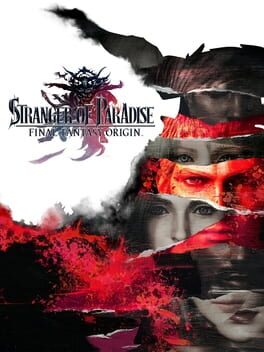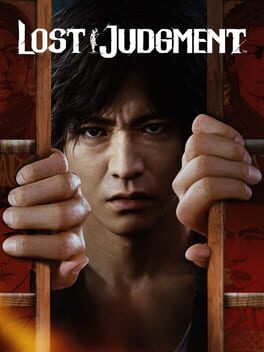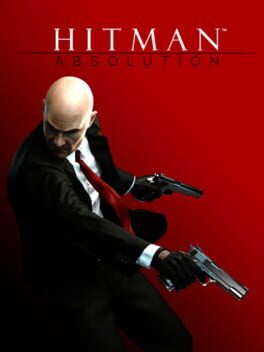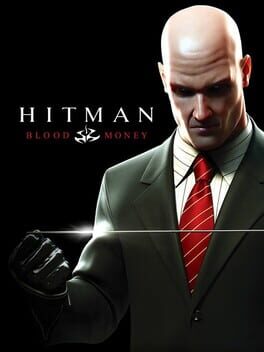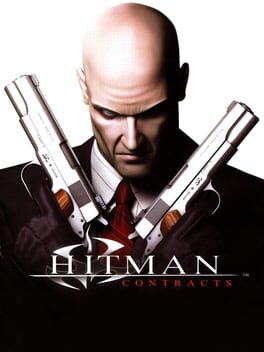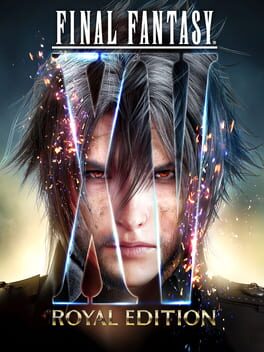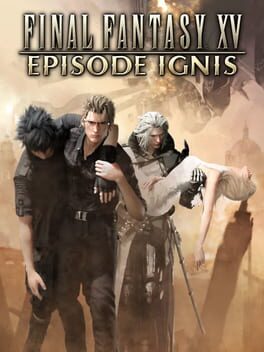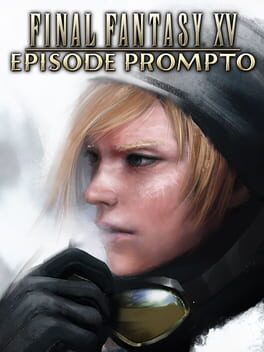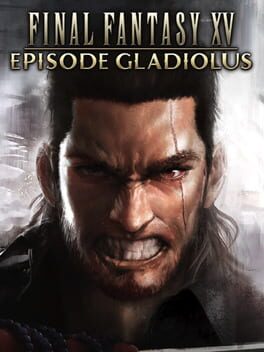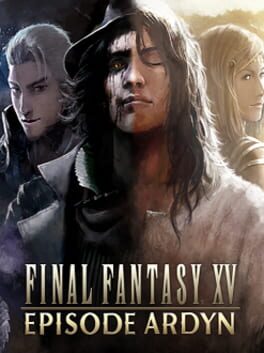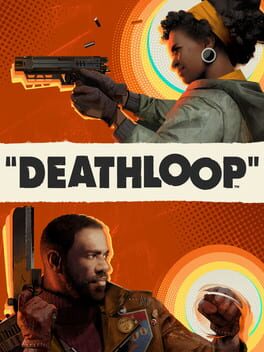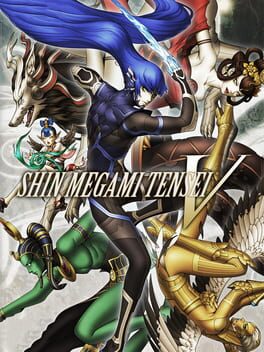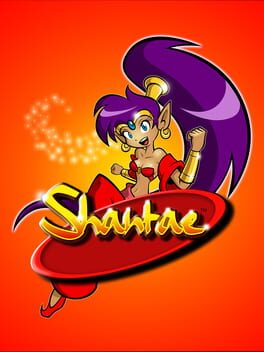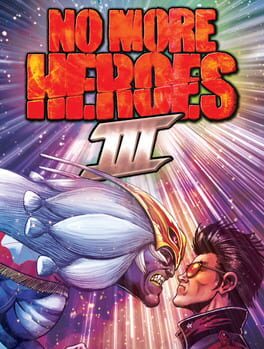Nyth_Grandbeard
Strangers of Paradise, is a strange game indeed. It tries to take the world and characters of the original Final Fantasy and explore some stories that were never told before. Simultaneously this game tries to set up a multiverse concept for all the Final Fantasy games to exist in parallel dimensions, so to say this game is ambitious for a spin off is quite the understatement. The game sees us take the shoes of Jack, and his group of buddies as they seek to destroy the evil force known as Chaos. Along the way we encounter various familiar locations from Final Fantasy games prior, while also fighting our way through hoards of enemies. The gameplay is not to dissimilar to Team Ninja's other offerings in the NioH series, but with a couple key differences. Namely there is no stamina bar, but instead a break gauge which will deplete with the more damage you take. Also the leveling system takes more after the Final Fantasy series as opposed to the NioH series, with the Job system, which lets you level up, and mix and match certain classes to unlock new ones. While overall this game is a fun and unique take on the Souls/NioH genre, and the story actually picks up towards the end the game isn't without it's issues. Much like NioH I am not a fan of the loot system in this game. The fact that almost every enemy drops a puddle of loot which is just the same piece of armor you got 30 times before but with slightly better stats is not a very engaging way to incorporate gear in my opinion, especially when loot will constantly be outclassed every new mission you go into. The constant stream of loot also clogs your inventory meaning every level or so you'll have to be scrapping piles of gear for mostly useless upgrade materials that you will seldomly use. And my other major gripe is the level design. While it is nice to see certain areas of Final Fantasy past be re-imagined, especially for games that haven't been in 3D before, the level design leaves a lot to be desired. Linear Souls like games such as Demon's Souls, and NioH both have little meandering paths, and hidden goodies for you to find, while this game mostly feels like grand open hallways with very little to find, or worth exploring. I feel like given a little more time this game could've been something truly special, but as it stands it's just a good, not great, action game that will go down as one of the more bizarre moments in the history of Final Fantasy. I hope this game receives a sequel which allows for more refinement, and maybe something that doesn't rely on pre-established lore to tell it's story. What they have here in a combat system is truly compelling, and something I think fans of Souls likes, and Final Fantasy will both equally enjoy.
2022
Elden Ring is the newest game from prolific developer From Software, and is the next step in evolution for the Souls series. The game is set in the world of the Lands Between where a legendary artifact called the Elden Ring is shattered and split amongst several Gods and Demi-Gods. You play a nameless Tarnished, a person who has been exiled from the Lands Between, who goes on a journey to collect all the shards of the Elden Ring and assume the Throne of Elden Lord. Along the way you will encounter various NPCs and locations that will help shape and weave your journey to one of many different endings. The gameplay is fundamentally the same as standard Souls-Like fair with parries, blocking, backstabbing, and stamina management but with added elements such as jumping, and horseback riding/combat. These two minor adjustments add a lot more depth to the Souls formula than what you may initially anticipate as jumping allows for a new style of dodging and platforming, and the horse allows for quick traversal and quicker combat. The platforming and quick traversal go hand in hand with this game's approach to the world you explore. Unlike Souls games prior which were either linear worlds, or interconnected levels, this game takes on the challenge of tackling a large open world, and is mostly successful with it. Unlike other open world games like Breath of the Wild or any of Ubisoft's recent offerings, the open world is densely packed, and if you're never more than a stone toss away from a point of interest or item; that is at least for the first region and all of it's encompassing areas. As you get further and further into Elden Ring, the less open it really gets, and by the end of it, you just end up playing a regular souls game with little interconnected areas, and very little wilderness to explore. Perhaps this is due to From Software's tried and true excuse since day one, "Time Constraints", but i'm not sure I buy into that anymore as From Software are big enough to be their own bosses, and could take as long as they needed to complete their vision. If the second half of the game was as solid as the first, i'd say this game is damn near flawless. But unfortunately it couldn't keep the momentum up. Now that is not to say the second half is bad, in fact it is way far from it. As a more standard Souls Experience the second half of the game provides, i'd say it's better than some of the worst areas of Dark Souls III and for that I am willing to forgive and forget. If we ever get an Elden Ring 2 I truly hope From Software doesn't give into pressure and make the game they want to make from start to finish. Because what's here in Elden Ring is truly something magical, and if it could have a more consistent world I think it would be one of the best games ever made.
2021
Lost Judgement is the second installment in the Ryu Ga Gotoku Studios' Judgement series, and it follows the adventures of the Yagami Detective Agency as they try to get to the bottom of a suspicious murder that is way more complex than meets the eye. This game takes place two years after the events of the first, and a couple months after the events of Yakuza 7 (Like a Dragon) where Yagami and Kaito are left solving small mysteries and crimes within their town of Kamurocho when they get a mysterious call from Sugiura, an ally from the previous game who has now set up his own detective agency in Yokohama. Sugiura asks for Yagami's help as a mysterious string of bullying cases have been plaguing the locals, quickly the bullying case unravels into something bigger as a dead body has turned up of a former student teacher of the local high school. The identity of the corpse is revealed in a seemingly unrelated battery case via a court room hearing. It is up to Yagami and his friends to solve the mystery of the dead body and how the plot goes way deeper than he initially imagined. This game's story has plenty of twists and turns as fans of the first Judgement game and greater Yakuza series as a whole have come to expect. The game will seemingly have you on the edge of your seat all the way to it's conclusion having you wonder where it will go. That is when you hit about Chapter 4-5 as the beginning of this game felt oddly slow to me especially compared to it's predecessor. It's not due to bad writing or anything, as the beginning of this game is to set up most of the key players and the greater mystery but it takes it's time a little too long which had me wondering when things were going to pick up, but rest assured when things do pick up, they pick up hard. The story over all is very satisfying as every primary character goes through their own arcs and experience growth in ways that I didn't see coming. One worry I had while playing the game is that Yagami seemingly uncovers most of the secrets of the enemies at almost a little past the halfway point which left me thinking that there would be no revelations or plot twists to keep me engaged until the end. But this game takes advantage of revealing most of it's secrets early to allow the antagonists to be involved in the plot in very interesting ways I didn't see coming. That said while the story was good it didn't leave me with that strong impact feeling I had completing the first one. The gameplay on the other hand feels super smooth and easy to control, and allowed for tons of fun as is usual for Ryu Ga Gotoku Studios. The developers really have learned the ins and outs of their proprietary dragon engine by this point so any hiccups or growing pains they experienced when making games like Yakuza 6 or Yakuza Kiwami 2 have been mostly ironed out. The open world of Kamurocho and Yokohama both are still fun to explore, and traverse through as you are now able to skateboard and have some limited parkour in certain segments to help you get around. There is also a ton of engaging side content to keep you occupied for hours on end. Overall Lost Judgement is a worthy successor to the first game, and hopefully there will be a third game to continue to the momentum, even though it maybe unlikely at the time of this review due to some internal politics involving Yagami's actor's management team. Regardless this game is satisfying from beginning to end, and if you love any of RGG Studio's offerings you'll certainly love this one.
2012
Hitman Absolution is the 5th Entry in Io-Interactive's series, and this game is sure a doozy. Following the release of the stellar entry, Hitman Blood Money, it almost felt like IO wanted to branch out and try new games which resulted in stuff like Kane and Lynch, and Mini Ninjas neither of which seemed to stick in the popular conciousness. and around the release of Kane and Lynch 2, Eidos, Former publisher for the Hitman Franchise was gobbled up by the japanese gaming conglomerate, Square Enix. These factors could have brought some stress upon the team around Absolution's development to result in such a tonally inconsistent, jumbled amalgamation of random ideas and concepts that is this game. Whatever the reason was Hitman Absolution really dropped the ball in terms of series momentum. The story follows Agent 47 as he is tasked to eliminate his former retainer, and only real friend, Diana. He soon comes to find out that the reason he was sent to eliminate her was so the Agency could get their hands on an experimental super soldier child that they had been developing who was stolen by Diana. He is left to care for the child but quickly gets out smarted by the main antagonist of this game who is just Jack Nicholson from the shining but slightly more nutty. The story tries to take it's self so seriously that it comes off incredibly edgy, and to top it all off it throws in all sorts of nonsense jokes and line delivery that throws the whole tone out the window. But most people don't play Hitman for the story, they mostly play it for the fun sand box levels and mechanics that they can play around with, so does this game deliver on that front? No. This game instead opts for an extremely linear level design philosophy which is so counter intuitive to the mechanics of the Hitman series, and this game in general. All the staple mechanics from Hitman return here such as sneaking, wearing disguises, and dragging bodies, but the way these levels are structured makes it so that all these core mechanics are pretty useless and instead the most optimal route to completion most of the time is to just instead go in guns blazing. It certainly doesn't help that this game also has really cheap enemy placement which makes it hard to not get spotted when joined together with the terrible instinct system. The basic premise of the instinct system isn't terrible, it essentially allows you to see enemies through walls and pin point targets which could be helpful for strategizing if it weren't for the fact that there is no map to reference along to like previous games. There is also the problem with disguises basically being more useless than they were in Hitman 2 Silent Assassin which says a lot. Basically any guard can see through any disguise unless you use your instinct ability to hide your features from oncoming guards. The big problem with this is that the instinct ability is based off a meter which lasts too little to really have an impact on sneaking past guards. Overall Hitman Absolution is an over bloated, mess of a game that if I had played on launch I would have assumed that this game would mark the end of the Hitman franchise as we know it. But at the time of writing this review there has been 3 additional Hitman games to have come out who bring the series back to it's roots and then some in some very impressive ways. There is only really one positive thing I can say about the game and that is that it runs as it should and isn't very buggy which nowadays is something that is far too rare. I wouldn't really recommend this entry to anyone, not even fans of the series, but if you are a completionist who has to play all the entries in the series, I just recommend playing this game more like a cover shooter, and less like a stealth game and you will have a much better time.
Hitman Blood Money is the fourth installment in IO Interactive's long running sandbox murder simulator that marks the end of the "classic" era of games while simultaniously starting the "modern" era. What I mean by this is the game feels very similar to Silent Assassin, and Contracts while playing but adds so many more mechanics, improved (exploitable) AI, and minor conveniences that make the experience much more friendly to fans of the modern trilogy. The game sees you refill the shoes of Agent 47 as he goes around the United States killing various targets who all have some ties or connections to candidates to an upcoming presidential election. Due to taking out targets around such a high profile event government agents are hot on the heels of your actions, and whether or not they catch you is for you to find out, but this game does culminate in an explosive ending that does not disappoint. The gameplay is your typical Hitman fare where you are dropped into sandbox environments where the world is your plaything. There are so many different ways to take out a target in each mission that each playthrough can feel different. Using various tools at your disposal like coins to distract NPCs, lock picks to open doors, and various different poisons to either lethally or non lethally take out enemies you may encounter. That's not to mention the various guns you have at your disposal to play with the sniper rifle, silenced pistols, and even automatic weapons. There are also plenty of disguises to be found in this game, and disguises work better than they ever have at the point of this game's release. It doesn't feel like NPCs can smell the murderous intent coming off of you from a mile away, and instead they won't notice you unless you do suspicious behavior or be in places you shouldn't be and it feels way more fair than how it worked in Silent Assassin and even in Contracts. The maps are also nice and compact in a way that they don't feel huge and open, and at the same time don't feel tiny and too short. They hit the perfect balance of depth where you are left with plenty of room to experiment, while not leaving you overwhelmed. Other than the tutorial mission in this game, which is one of the biggest red herring in gaming as it feels like an entirely separate game from the rest of the experience. But if you can look past that you will be left with an awesome experience with tons of replay value, and a fun time you won't soon forget.
2013
Hitman Contracts is the 3rd installment in IO Interactive's Hitman Franchise, and what it doesn't do in original content makes up for in vastly superior mechanics and AI programming to it's predecessor Hitman 2: Silent Assassin. The game follows Agent 47 as he has been severely injured while on a mission and he is left to recover in his hotel room as he recollects various missions he went on, 6 of which are original scenarios for this game while the rest are remakes of levels from the original game, Hitman: Codename 47. The original levels are full of atmosphere, and condensed enough that the levels don't feel empty and lifeless like in Silent Assassin. Some stand outs include The Meat King's Party which is an orgy of blood, and ecstasy as 47 must take out truly despicable enemies. There's also Beldingford Manor which is dripping with atmosphere, and feels fully realized with so many secrets and environmental story telling that you could get lost in the level. Now with that said the levels remade from Codename 47 aren't bad in fact I feel like quite a few of them make the transition quite well such as Traditions of Trade, or The Lee Hong Assassination. The gameplay is your usual Hitman affair where you are left in a sandbox world to take out your target anyway you desire, but for the first time in series history (at the time of it's release) it feels like all the mechanics work as they should like using disguises, and being able to navigate the world with ease. I'm comfortable with saying that Hitman Contracts is the entry in which the series starts to actually be good. It is certainly far from perfect, but it is a step in the right direction from Silent Assassin, and I can't wait to see what Blood Money has in store next.
FFXV Royal Edition lives up to is subtitle as it is the definitive way to experience the story of FFXV. I originally fell in love with the game back on release but with this re-release I only love the game more, but this most recent playthrough has definitely showed some issues I have with this title. The story follows Noctis, a young prince of a kingdom called Insomnia who begrudgingly accepts his duty to one day be king. The narrative starts with Noctis and his best friends Gladio, Prompto, and Ignis going on a road trip to meet Noctis' fiance Lady Lunafreya. Things are quickly derailed however as back home Noctis' dad is murdered during a peace treaty signing with the kingdom of Nifilheim. Now Noctis is thrust into the shoes of Kinghood as he must fight an enemy nation, and an ancient advisory to emancipate his people and his nation. Most of your playtime will be dedicated to driving around the open world with your buddies as you forge memories, and fight various monsters, and daemons. Open world is something I would use loosely however because if you spend more than a couple minutes exploring the areas off the beaten path you'll be greeted with countless fences and impassible mountains, and what little area you are able to explore off the road rarely has any content worth exploring outside of the occasional dungeon or hunt, and herein lies my main issue with XV and that is that the game came out in a time where every game had to be an open world adventure, and this game tried to do that. The world is very pretty to look at from the road but venture off the beaten path and you will notice things fall apart rather quickly. Despite this the content that is present is really good and engaging and should keep you entertained for hours on end. The combat sees Noctis use his various weapons to deliver devastating damage to his foes in a character action style which is a first for the Final Fantasy mainline series. While many fans bemoan the change in gameplay style I think it is a vast improvement over the nauseatingly mid tier combat styles Square had come up with in the last couple installments as they attempted to reinvent the wheel. As an action game XV isn't the most in depth but it delivers enough variety to take you over the finish line without it all feeling too repetitive which is more than what I can ask for. Royal Edition also adds many new cutscenes not present in the original release to further flesh out the story, and think they are all welcome additions as it helps flesh out certain characters who didn't get much screen time before. Also included with the Royal Edition are all the original DLC for the game excluding Episode Ardyn, and all the DLC help expand the world and story of XV in great ways. I have reviewed the DLC separately so I won't go over them here but they are all worth your time to get the most out of this game's story. Also included is a completely reworked final dungeon, which previously was just 2 hallways. Now the final dungeon is it's own open world area that has it's own side objectives and really helps drive home the devastation that the Nifilheim have caused. Overall while many people deemed XV as the downfall of the main series due to it's combat change, and its tumultuous development history, I think it is a step in the right direction and is a great new beginning for the series, as it seems at the time of writing this review that XVI will take many concepts and ideas explored in this game and expand upon them for the better with the awesome development team behind FFXIV working on it. FFXV is a game that has greatly impacted me on release, and I am glad to say that it still hits as hard if not harder with the new content that has come out since it's initial release and is a must play for any JRPG or gaming fans in general.
Episode Ignis is the fourth piece of DLC for FFXV if you include Comrades, and follows Ignis during Noctis' attempt to complete the rites with Leviathan during the 3/4 part of the main story. There isn't a lot to say about the story as it would spoil a ton of interesting things that I think are very cool to experience on your own. All I will say is that this DLC adds an alternate ending which attempts to set up a new story line that would've continued in Episode Ardyn if it wasn't scrapped, and while I heard a ton of people saying it was a really good alternate ending, I feel like I have to respectfully disagree as it kind of contradicts the entire theming and messaging of the original base game as a cheap attempt to give fans what they think they want. Thankfully there is a true main ending which in my opinion is just as if not more epic than the alternate ending which gives you more appreciation for Ignis as a character than any other part of the story. The combat sees you use Ignis' daggers as they are imbued with elemental magic, each one allowing for different play styles such as speed, strength and balance. You are able to pull of some crazy combos if you switch between styles during the middle of battle which felt insanely satisfying. And for a considerable portion of the DLC you are able to zip around the city of Altissia with a grapple hook. It almost feels like Spider-Man which I really enjoyed. Overall Episode Ignis is the best DLC of the original line up and is an absolute must play if you revisit FFXV, or are playing for the first time.
Episode Prompto is the second piece of DLC for FFXV and takes place towards the end of the story when Prompto is briefly ejected from the party. The story follows Prompto as he comes to terms with his true identity and origins as he fears it may cause a rift between him and his best friends. Prompto traverses through the Nifilheim base, and a frozen tundra with the help of Aranea Highwind, using his various gun techniques which work surprisingly well for an engine which wasn't built for third person shooting gameplay. Unfortunately this DLC starts to overstay it's welcome towards the end and I was just itching to get it over with. The main thrust of Prompto's side story is mostly explored early on in the DLC and instead of approaching his inner turmoil in an interesting way I feel like Prompto is left pouting a little too much which I felt was a little out of character for him. I understand what he was going through was extremely difficult, but how the writers approached his response to this information felt a little weird to me which really killed the main vibe. Despite this I think the expansion is a must play if you are going for the complete FFXV story.
Episode Gladiolus is the first piece of DLC content for FFXV, and it really shows. It is a DLC that has big ambitions, but is just too short to really see those ideas shine. The DLC follows Gladio as he briefly leaves the main part in the middle of XV's story. He leaves with an older royal guard named Cor, and together they go into the lair of the ancient Royal Guard of the first king of Lucis, Gilgamesh. The main content of the game is just a couple of action set pieces where you fight a couple waves of enemies and descend further into the cave to challenge Gilgamesh and prove yourself as a worthy shield to King Noctis. Gladio himself plays really well all things considered as he is slower than Noctis, so his combat focuses on pacing yourself and parrying at the right time. When you master Gladio's play style the DLC really shines, and it's put on full display during the battle against Gilgamesh himself and the bonus fight with Cor. Sadly like I mentioned outside of those two instances the DLC doesn't really take the time to challenge the player in any meaningful way which is truly a shame. Luckily as the DLC kept coming out the content got better as the development team were willing to experiment... for the most part.
Episode Ardyn is the final piece of DLC for the post launch line up of content for the Final Fantasy XV media amalgamation. What was originally supposed to be the start of a new story line that would've seen our cast of characters get a happy ending instead was transformed into a more straightforward prequel to the main game. In this DLC we learn more about Ardyn's backstory, but before you play this game it is highly recommended you watch the Episode Ardyn Prologue animation on youtube on the official FFXV youtube page, which is done by the same team who did the FFXV Brotherhood animation. It provides more context for the story by showing things that are only vaguely hinted at in the actual DLC content itself. Combined it presents a really compelling backstory for XV's main antagonist that leaves you really questioning who is the bad guy by the end. The gameplay is rather straight forward as Ardyn has similar abilities to Noctis, and then some such as demonification of your enemies and teleporting. The bulk of the DLC takes place in what amounts to 4 blocks of Insomnia, where you can wreak havoc to the citizens of the city and rack up points. In battle we are also greeted to a catchy song sung by Lotus Juice of Persona series fame, and it really puts the whole experience together in an awesome, yet sorrowful package. I highly recommend Episode Ardyn to anyone who plans to revisit XV, or as a first timer. If you have already beaten the game before I recommend starting with the DLC first as it sets an entirely different tone to the rest of the game's events but if you are a first timer I recommend saving it for the end as it does spoil some late game story points. I think as it stands Episode Ardyn is the perfect end cap to the many ups and downs of the existence of the expansive FFXV universe.
2021
Deathloop is the newest game from Arkane studios at the time of writing this review, and it carries the mantle of the sandbox style gameplay we have become accustom to through their similar games like Dishonored, and Prey. And i'm happy to report that this game does in fact carry that legacy on with style and grace, but it isn't without it's flaws. Deathloop is set in an alternate 1960s where scientists have discovered an island with an odd anomaly where the same day loops over and over again, and it's up to our protagonist, Colt, who wakes up on a beach with no memories to try and break the loop and not only set himself free but also the inhabitants of the island, willing to or not. This simple premise is what ties together the big mechanic of the game and that is the looping day system. This is where the same day is played on repeat until you break the loop. The day is split into 4 sections, morning, noon, afternoon, and evening, and within these four blocks you have to try and figure out how to take out all 8 targets in 1 run to be able to break the loop. The gameplay is your standard first person shooter fare in terms of gun play but with the added element of you gun having the potential to jam. This can cause some intense moments when surrounded by hostiles. This game also incorporates supernatural powers for colt to use to be able to traverse and manipulate the world around him to better achieve his goals. Some of these abilities are familiar ones from Arkane's other games while others are new, but all remain as fun to play around with as ever. My biggest gripe with the game is the lack of any pacifist route which has been present on Arkane's other sandbox offerings. Pacifism routes are probably my favorite aspect of Arkane's library due to the added challenge and unique plot elements presented through taking non lethal methods. Sadly this game exclusively opts for a shoot first ask questions later approach which made the game feel a little too easy at times. But once I got my head in the right space and started going in guns blazing I had a much more fun time. There is also the aspects of invading which you can be invaded by other players who take the roll of Julianna to try and stop you from breaking the loop but unfortunately by the time I played the game the servers were rather empty and more often than not I ended up fighting just NPC Julianna's, and when I tried to invade others it would take upwards of 10 minutes to find someone else. Regardless the game is still a blast, the story is engaging especially towards the end, and the world is dense with so many details that it feels really lived in. Here's to hoping Arkane's next offering isn't an exclusive to Xbox consoles so I am able to give it a try.
2021
Shin Megami Tensei V is the newest entry in the long running JRPG series from Atlus, and my favorite series of all time. Does this long awaited JRPG live up to the hype and anticipation built up to it's long and troubled development? The short answer is yes and no. There are aspects to this game I really enjoy, and other aspects not so much. To start off with the positives is that SMTV is definitely the next big step of the series as this time the developers reduced the focus on big dungeons in favor for big open areas that serve as micro open worlds full of content such as side quests, treasure, various different demons to recruit and fight. One of the original concepts for Nocturne was to have a big open world to be able to see demons walking around the world, and being able to look up and get a scope of the world and how you fit into it and now it feels like that vision is finally coming to fruition and Atlus, and Team Maniax stick the landing for the most part. One of my major qualms with with the open world however is it feels like they didn't take full advantage of being able to sneak in tons of secrets like Nocturne. Nocturne had so many hidden boss fights and areas like Mara slime, and Masakado's palace with the Devas, and this would've been the perfect opportunity to explore those kind of hidden secrets even more but sadly there isn't much to be found on the over world in terms of secrets. The combat is the best that the series has ever been, with the press turn system, but also the introduction of Magatsuhi skills which allow you to pull off moves that don't take a turn that can either buff your party or deal heavy damage to your foes but thankfully the game is balanced in such a way that the Magatsuhi skills don't break the game. There is still plenty of challenge to be had, as enemies can also take advantage of Magatsuhi skills. This small tweak to the SMT formula really helps keep the combat fresh and allows for a lot of strategy when facing a boss as you may have to choose between several magatsuhi skills which could make or break the fight. Now to briefly touch on my biggest problem with the game is the story. My problem with the story doesn't stem from the writing per se as I feel it's a massive step up from Apocalypse, however the story just kinda ends. The final bit of the game just kinda deflates and it feels like a quick race to the finish line which is a huge juxtaposition to other games in the series like SMT IV and Nocturne where those game's final parts were considerably longer and delivered a lot more of a pay off. It might be because development on this game restarted part way through, or because of covid but it feels like this game just kinda ends 3 quarters of the way through the story, and that really deflated my positivity for this game. Maybe we will get an expanded release one day as the game files seem to suggest but until then SMTV is a very solid entry in the series, and is mostly a course correction from Apocalypse, but it's still far from reaching the heights and the glory of earlier Mainline titles.
2021
Shantae is the first game in the legendary platforming series known for it's excellent sprite animations, and lovable character designs. The story revolves around a Half-genie, the titular Shantae, who is the guardian of a port side village called Scuttletown. One day her village is attacked by the nefarious Pirate Queen, Risky Boots who steals the plans from a local inventor to build a steam powered machine of destruction. Now it is up to Shantae to not only avenge her friends but also stop Risky from taking over the 7 seas. The story is rather simplistic, however it is still enjoyable as all the characters you encounter are all vastly unique, and have their own quirky character animations that help them stand out from each other. So certainly don't expect a NieR, or Killer7 level of writing with this game, and to me that's just fine to sit back and enjoy a fun little adventure. The gameplay is a rather traditional sidescroller platforming adventure on the surface but what makes Shantae stand out from the crowd is the transformations you unlock as you progress through the game. Shantae can transform into things like Monkeys, Spiders, or even Elephants to help traverse through her world and this opens up many possibilities for solving puzzles or defeating enemies. Speaking of enemies, one of the major drawbacks in my opinion is that Shantae's primary method of attack is whipping her hair at enemies which all things considered is a very short ranged attack. The problem with this is that most enemies you encounter through dungeons or the overworld are rather tanky taking upwards for 5-10 hits to dispatch, meaning you have to be right up on the enemy whipping your hair as fast as possible. This causes a problem when a lot of these enemies have a combination of ranged and close quarter attacks meaning you'll almost always take hits, even if you are really skilled. I found most of the time I just ended up skipping most of the fights I could just to avoid losing HP and personally I feel like that strips away some of the fun of a platformer. Overall however, Shantae is a very unique game, and is perhaps one of the best games to have originally come out on the GBC. The version I played was the remaster on Nintendo Switch, where they used a proprietary engine to upscale and faithfully recapture the original game's feeling and appearance and to that I say they did a pretty good job, also with adding a couple filters to best suit the player's taste. Shantae is a solid first entry to what would later become a very popular franchise, and I can't wait to sink my teeth into what the later games have in store as there is a lot of potential here to improve and make a truly unforgettable experience.
2021
No More Heroes 3, despite it's titles is the fourth, and final(?) entry in Grasshopper's No More Heroes franchise and is the latest installment in the Kill the Past series at the time of writing this. This game follows Travis Touchdown after the events of Travis Strikes Again who is living out in the No More Heroes Motel which is currently overrun by his various friends like Shinobu, Bad Girl, Bishop and Naomi when all of a sudden his beloved town of Santa Destroy is invaded by the evil Space Prince Fu, and his 9 minions. Travis now steps into action to protect not only his town but also the world. This game continues several plot threads not only from NMH 1 and 2, but also TSA which really made me happy as I was concerned Suda would have skipped that game considering fan backlash. This game also brings back some of the Kill the Past elements from TSA which brought a smile to my face. The gameplay in terms of combat is refined compared to the previous entries, however I still prefer the gameplay to NMH2 more personally. It's not that it's worse than 2 it's just that it is different enough that It didn't scratch the same itch 2 did which was a little disappointing personally, but isn't a knock against the game at all as it is more of a personal preference thing. The overworld on the other hand is a completely different story, as that the game chugs on the nintendo switch's hardware as you explore Santa Destroy and it's surrounding areas. Jobs also make a return however they feel not very required as you make more than enough money doing designated battles around the map which take over the role of dungeons in this game. I know the lack of dungeons may disappoint some, but with the designated battles I felt mostly indifferent and didn't really feel too much one way or another. Overall NMH 3 has the makings of the best game in the series however, thanks to it's poor performance for what ostensibly is one half of the whole game I can't really rate it higher than the previous 3 entries. Maybe if it makes its way to PC or PS4/5 I'd be willing to reevaluate but in it's current state it's a little disappointing.
